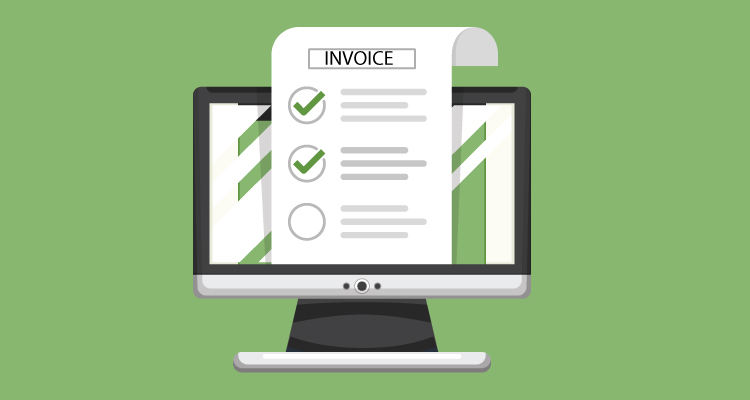Invoice payment terms could arguably be the most important part of invoicing. That’s because your payment terms define when and how you’ll be compensated. So, if you choose the wrong terms, you could be doing some serious harm to your cash flow.
As you know, when you experience payment delays in your cash flow you’re putting your business in jeopardy. That’s because you don’t have the money to satisfy your expenses. That can result in penalties like late fees.
Simply put, having clear invoice payment terms ensures that you get paid in a timely manner. But, which terms should you go with? Definitely start with these five payment terms.
Table of Contents
Toggle1. The shorter, the better.
Invoice terms vary across industries. For example, manufacturers except a payment to be made within 30 days, aka NET 30. In the fashion or construction industries, the norm is NET 30 or NET 60. With Freelancers, this could be anywhere from 30 to 60 days.
Unless there’s a strict industry standard, you have some flexibility in selecting your billing terms. And, in most cases, this means that they should be listed or said in a way that is as short as possible.
After we studied over 250,000 invoices, we found that 63 percent of invoices are paid on-time within 30 days. We also discovered that 18 percent of all invoices are paid within 24 hours of being sent. However, if an invoice hasn’t been paid within 90 days, then only 18 percent of those invoices get paid.
Research from Xero shows that between 70 percent and 80 percent of businesses give two weeks or less to be paid. Over half, however, request a payment within seven days.
In other words, not only is it common to request shorter payment terms, it’s also in your best interest. After all, the sooner you get paid, the sooner you get cash flowing back into your business. And, it also encourages the other party to pay your invoice faster.
Bonus tip: When writing your payment terms, use “days” instead of “net” so that it’s crystal clear when you expect to be paid.
2. Payments should be upfront or immediate.
“Payment in advance, or PIA for short, is simply a payment that is made ahead of schedule,” writes Due co-founder John Rampton. “It’s not uncommon for business owners to require advance payments for their products or services.”
“For example, a freelance graphic designer may need a 50 percent down payment before starting a project. Advances protect sellers against non-payments and to cover any out-of-pocket expenses.”
If a client doesn’t agree on an advance payment, then you should request an immediate payment.
Often associated with “Cash on Delivery” (COD) or “Payable on Receipt,” an immediate payment is one that’s “due at the same time as a product or service is delivered.”
Rampton adds, “If the client doesn’t make the payment immediately — whether by credit card, e-check, wire transfer, or online service payment — the seller has the right to repossess the goods of intellectual property.”
“While this term is beneficial for the business owner since it speeds-up the payment process, it’s unpopular among some clients and customers since they’re afraid that they won’t have the cash to cover the bill.”
3. Mind your manners.
Take the advice of your mom; always say “please” and “thank you.”
It’s been found that, “A simple ‘please pay your invoice within’ or ‘thank you for your business’ can increase the percentage of invoices that are paid by more than 5 percent!”
The reason? Good manners can help establish and strengthen relationships. And, if you have a strong relationship with a client, they’re more inclined to pay you quickly.
4. Discounts and overdue fees.
As noted in a previous Due article, “Offering an incentive is one of the best ways to secure a better payment term for your small business.” For example, you could offer an incentive like free shipping, discounts on future work, or a 2/10 Net 30. This where there’s a two percent discount if you’re paid within 10 days.
This is usually a win-win. Since you’re getting paid sooner, you’re reducing any gaps in your cash flow. This also keeps the customer satisfied since it saves them a couple of bucks.
However, you should also implement overdue fees. “This is the interest rate that you’re going to charge a client if they miss the due date.” When the client “is aware that there will be a penalty if the invoice is not paid by the due date, it should be enough to motive them to accept your terms.”
When using overdue fees, make sure that they’re reasonable. Charging an excessively high late fee may backfire and influence the client not to pay the bill. In most cases, it’s customary to charge 1.5 to two percent of the invoice amount as a late fee for past due invoices.
5. Multiple payment options.
We live in an era of digital banking and electronic payments. So, why not use this to your advantage? For example, platforms like Due allow you to accept payments via PayPal, credit card, ACH, transfer, and even cryptocurrencies like bitcoin.
By accepting a wide-range of payments, you’re allowing you’re customers to use a payment method that they’re comfortable with. When a customer is familiar and trusting of a payment method, they’ll be more inclined to pay the invoice on-time.
The bottom line on invoice payment terms.
Don’t overthink your payment terms. Keep them as simple as possible. This means keeping them short, requesting advanced/immediate payments, being polite, offering incentives/penalties, and accepting multiple types of payments.
When you communicate these terms with your clients or customers in advance, you’ll increase the speed in which your invoices will be paid.















